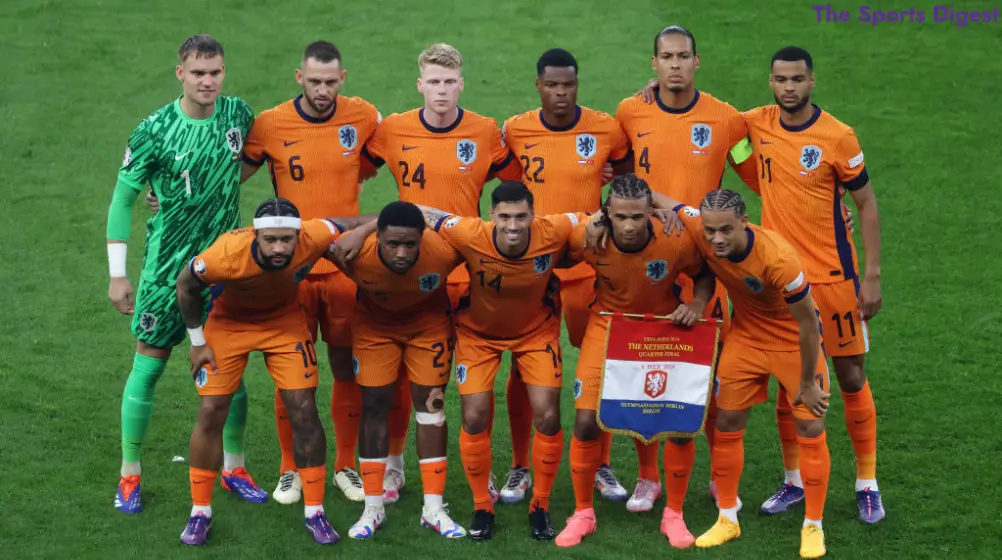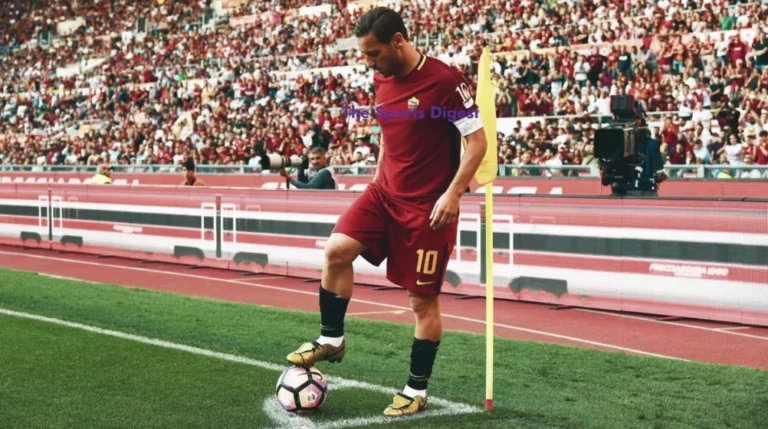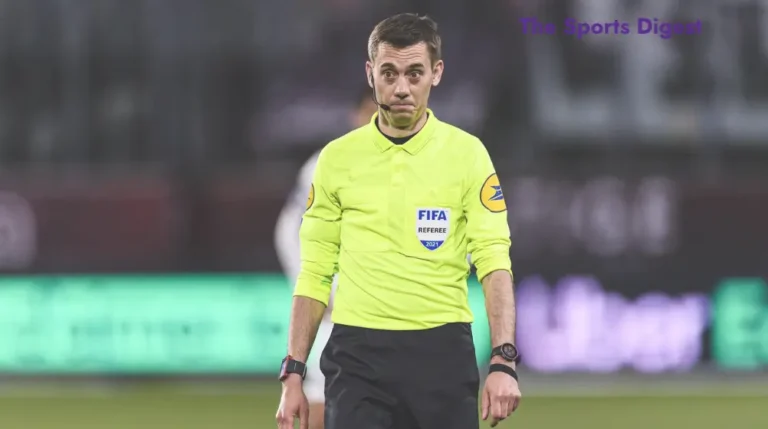Netherlands: Unstoppable Force in Football
The Netherlands national football team is one of the most prestigious teams in football history, with a long and distinguished record in international competitions. The Dutch team has qualified for the World Cup finals three times, alongside its major success in the UEFA European Championship. However, despite all these accomplishments, the Netherlands has never managed to win the World Cup, despite reaching the finals three times. In this article, we will discuss the history of the Netherlands national team, its unique playing style of “Total Football,” and the key moments in its journey through the years, starting from its inception to the 2014 World Cup.
Table of Contents
History of the Netherlands National Football Team
The Dutch Football Association was founded in 1889, and its membership in the Fédération Internationale de Football Association (FIFA) came in 1904, marking the beginning of the Netherlands’ participation in the international football scene. After several years of limited success, the Dutch team emerged powerfully in the 1970s with a unique playing style that became known as “Total Football.”
This style relies on all players being involved in both attacking and defending roles. During this period, the legendary Johan Cruyff led the team, and the Dutch club Ajax executed this style to perfection, winning multiple European trophies, including three consecutive European Cup titles. With this success at the club level, Dutch national coach Rinus Michels decided to adopt Total Football, significantly improving the performance of the national team.
The Birth of Total Football
In the 1970s, the Netherlands introduced the world to a new playing style that left a lasting impact on the game. This style, known as “Total Football,” emphasized fluid movement, with players constantly switching roles between defense and attack. It became a hallmark of the Dutch national team and was instrumental in their success during this era. Under the leadership of Johan Cruyff, this approach captured the imagination of football fans worldwide and was part of the reason why the Netherlands became one of the most respected teams in the world during this time.
The First World Cup Appearances (1934-1938)
The Netherlands made its first appearance in the World Cup in 1934 in Italy. However, they were eliminated early after losing 2-3 to Switzerland in their opening match. Despite this early setback, the Dutch team continued to participate in future World Cups, and in 1938 they qualified for the tournament in France, where they faced Czechoslovakia in the Round of 16 but were defeated 3-0, marking another disappointing exit.
Total Football Makes History (1974-1978)
In 1974, the Netherlands returned to the World Cup in Germany and stunned the world with their remarkable style of play. For the first time in its history, the Dutch team reached the World Cup final, where they played against the mighty West Germany. The Dutch team defeated Brazil and Argentina in the knockout rounds and advanced to the final. In the final, the Netherlands took the lead early with a penalty goal from Johan Neeskens, but West Germany equalized with a penalty from Paul Breitner, and Gerd Müller scored a second goal to give the Germans a 2-1 victory. Despite the loss, the performance of the Dutch team was widely praised.
In 1978, the Netherlands reached the World Cup final once again, this time in Argentina, but lost 3-1 to the host nation in a thrilling match. Nevertheless, the legacy of these Dutch teams and their Total Football philosophy left a lasting impact on the game.
2010 World Cup: Another Shot at Glory
In the 2010 World Cup, held in South Africa, the Netherlands was in excellent form. The team played remarkable football and reached the final for the first time since 1978. They faced Spain in the final, but despite a strong effort, the Dutch team lost 1-0 after extra time, with Andrés Iniesta scoring the winning goal for Spain. Although they were disappointed by the loss, the Netherlands remained one of the most admired teams in world football.
2014 World Cup: The Dutch Team Matures
In the 2014 World Cup in Brazil, the Netherlands delivered a strong performance under coach Louis van Gaal. They started the tournament in sensational fashion by defeating Spain 5-1 in a match that featured one of the most spectacular goals in World Cup history, with Robin van Persie scoring an incredible header. After that, the team continued to perform well and reached the semifinals.
Netherlands’ Performance in the 2014 World Cup:
| Team | Points | Goals Scored | Goals Conceded | Goal Difference | Wins | Draws | Losses | Played |
|---|
| Netherlands | 12 | 13 | 2 | 11+ | 4 | 0 | 0 | 4 |
| Hungary | 9 | 10 | 5 | 5+ | 3 | 0 | 1 | 4 |
| Romania | 9 | 8 | 4 | 4+ | 3 | 0 | 1 | 4 |
| Turkey | 3 | 4 | 6 | 2- | 1 | 0 | 3 | 4 |
| Estonia | 3 | 1 | 6 | 5- | 1 | 0 | 3 | 4 |
| Andorra | 0 | 0 | 13 | 13- | 0 | 0 | 4 | 4 |
In the semifinals, the Netherlands faced Argentina, and after a goalless draw, the match went to penalties. Argentina won the shootout 4-2, and the Dutch team was eliminated from the tournament.
However, the Netherlands bounced back to claim third place by defeating Brazil 3-0 in the third-place playoff.
Great Dutch Players in History
The Netherlands has produced some of the greatest footballing talents in history. Some of the most prominent players include:
- Johan Cruyff: A football legend and the architect of Total Football, Cruyff was instrumental in the Netherlands’ success in the 1970s.
- Marco van Basten: A clinical striker and one of the best Dutch players of the 1980s and 1990s, famous for his incredible volley in the 1988 European Championship final.
- Dennis Bergkamp: An elegant forward who became an iconic player for both the Netherlands and Arsenal, known for his technical brilliance.
- Ruud Gullit: A versatile attacking player who was a key figure in the Netherlands’ European Championship victory in 1988.
- Frank Rijkaard: A midfield general and defensive anchor, Rijkaard was a vital part of the Netherlands team in the 1980s and 1990s.
- Ronald Koeman: A solid defender and a leader in the 1980s, Koeman played a crucial role in the Netherlands’ triumph in the 1988 European Championship.
- Ruud van Nistelrooy: A prolific striker, Van Nistelrooy was one of the best Dutch forwards of the 2000s.
- Wesley Sneijder: A creative midfielder, Sneijder was a star in the Netherlands’ World Cup 2010 campaign.
- Arjen Robben: A world-class winger known for his dribbling and speed, Robben was one of the best wingers of the last decade.
- Robin van Persie: A lethal striker and one of the best Dutch forwards of his generation.
Conclusion
The Netherlands remains one of the most respected teams in the world of football, despite never winning the World Cup. The team’s history is filled with remarkable achievements and moments that have made it one of the most beloved national teams in the world. From their early days to their continued success on the international stage, the Netherlands will always be a force to be reckoned with in world football.
Have you ever read an article like this?
There are no reviews yet. Be the first one to write one.






